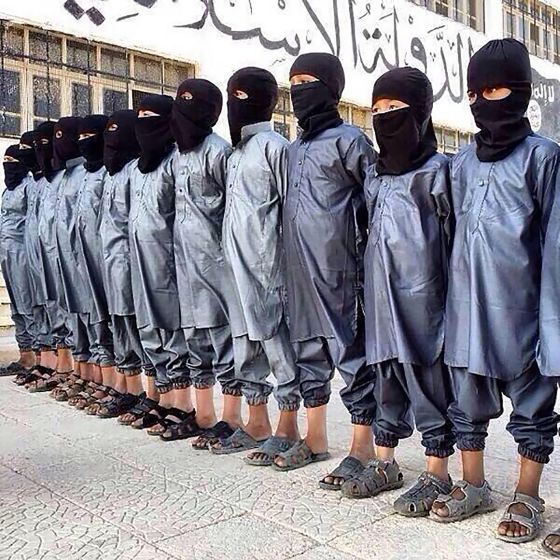Al Jazeera reports: Palestinian President Mahmoud Abbas has signed a document at a meeting in Ramallah requesting membership of the International Criminal Court (ICC).
Abbas signed the document on Wednesday, a day after a UN Security Council (UNSC) failed to pass a resolution that had aimed to set a deadline for Israel to end its occupation of territories sought by the Palestinians.
The president also signed a raft of about 20 other treaties, aligning Palestine with various international organisations.
The decision sets the stage for filing a war crimes case against Israel for its actions in Gaza. Israel’s President Benjamin Netanyahu vowed to take action following the announcement. [Continue reading…]
Julian Borger writes: ICC membership is a powerful weapon but it is also double-edged. It defines the geographical area in which such crimes can be investigated, and the Palestinian leadership could also define a time period for the prosecutors to examine, but it cannot dictate the target of such an investigation. For example, if Abbas now seeks a retroactive investigation of the last bloody bout of violence in Gaza last summer, as he has the right to do, both the Israel Defence Forces and Hamas would be scrutinised for their actions.
That was one reason for delay. Hamas is Abbas’s principal challenger on the Palestinian political scene, but he wanted to secure its approval before making a final decision on ICC membership. There were other reasons for caution. The threat of joining the court was also one of the few meaningful bargaining chips Abbas could take into the negotiating chamber with his Israeli counterpart, Binyamin Netanyahu. Now it has been used, he is virtually empty-handed. But such chips are only of any use when there is a dialogue and a diplomatic process. Right now, there is neither.
It is not the first time the Palestinians have sought redress at the ICC, which has been reluctant to get involved in the Israeli-Palestinian conflict. As long ago as 2009, they went to the court in The Hague with an ad hoc request for a war crimes investigation in the wake of an earlier Israeli offensive in Gaza, Operation Cast Lead. The chief prosecutor at the time, Luis Moreno Ocampo, took three years to decide on the status of that request before announcing in 2012 that it was a decision about Palestinian statehood that could only be taken by the UN general assembly. In November 2012, the UN voted to recognise Palestine as a non-member observer state, which gave it the right to join the ICC and make ad hoc requests for investigations. Moreno Ocampo’s successor as prosecutor, Fatou Bensouda, ruled that Palestine’s new status could not be applied to its 2009 request for an investigation. If the leadership wanted such an investigation, Bensouda argued, it would have submit the request again. But Abbas came under intense pressure from the Israelis, Americans, British and other Europeans not to do so, backed up by threats of financial and economic sanctions.
Wednesday’s decision will exact a price in the form of such punitive measures that could cripple the Palestinian Authority. But Abbas clearly decided he had been treading water for far too long. A fter the defeat on Tuesday of a UN security council resolution demanding an end to occupation by 2017, and with his popularity plummeting, he has sought to carve out as much Palestinian sovereignty as he can as a political legacy. [Continue reading…]
The New York Times adds: “There is no question mark as to what are the consequences, that there will be immediate American and Israeli financial sanctions,” said Khalil Shikaki, director of the Palestinian Center for Policy and Survey Research in Ramallah. “Those sanctions will gradually become more and more crippling, and this could indeed be the beginning of the end of the P.A. They fully realize that.”
A poll in December by Mr. Shikaki’s group found that just 35 percent of Palestinians approved of the president’s performance, down from 50 percent before the fighting in Gaza. If there were elections now, the poll found, Mr. Abbas and his more secular Fatah party would be defeated by Hamas, the Islamist faction that dominates the Gaza Strip. Reconstruction in Gaza after the devastating war has stalled amid continuing acrimony between Hamas and Fatah despite an April reconciliation pact, and analysts said Mr. Abbas was desperate to show that he was effective.
“They have to take some meaningful steps to recover anything of their really shredded credibility,” Nadia Hijab, executive director of Al-Shabaka: The Palestinian Policy Network, said of Mr. Abbas’s team. “That fig leaf of action is growing steadily more tattered. They keep saying it’s a new paradigm and they want to use international tools, but now they have actually been put on the spot.”

